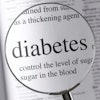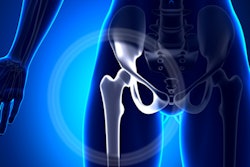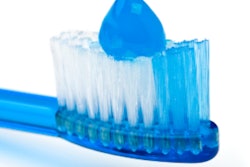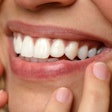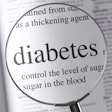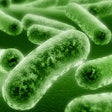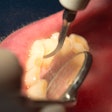A new study published in the Proceedings of the National Academy of Sciences (November 17, 2014) has found that, after long-term exposure, triclosan can cause liver fibrosis and cancer in laboratory mice through what the researchers called "molecular mechanisms that are also relevant in humans." However, the study authors emphasize that triclosan does have "health value" in certain toothpastes.
Triclosan is an antimicrobial found in toothpastes, soaps, shampoos, and other products.
But there may be a risk associated with triclosan, according to study author Robert Tukey, PhD, a professor in the departments of chemistry and biochemistry and pharmacology at the University of California, San Diego (UCSD).
"Triclosan's increasing detection in environmental samples and its increasingly broad use in consumer products may overcome its moderate benefit and present a very real risk of liver toxicity for people, as it does in mice, particularly when combined with other compounds with similar action," Tukey stated in a press release.
In the study, mice that were exposed to triclosan for six months (which is about 18 human years) were found to be "more susceptible to chemical-induced liver tumors." Their tumors were also larger and more frequent than those in mice not exposed to triclosan.
Triclosan may interfere with the constitutive androstane receptor, a protein responsible for detoxifying foreign chemicals in the body, according to the study authors. They speculated that, to compensate for this stress, liver cells proliferate and turn fibrotic over time. This repeated exposure and continued liver fibrosis eventually promotes tumor formation.
Previous studies have found traces in 97% of breast milk samples from lactating women and the urine of nearly 75% of people tested. Triclosan is also one of the seven most frequently detected compounds in streams across the U.S., according to UCSD.
"We could reduce most human and environmental exposures by eliminating uses of triclosan that are high-volume, but of low benefit, such as inclusion in liquid hand soaps," stated study author Bruce Hammock, PhD, a professor at the University of California, Davis, in the release. "Yet we could also for now retain uses shown to have health value -- as in toothpaste, where the amount used is small."



